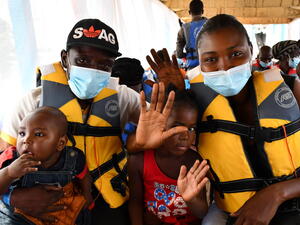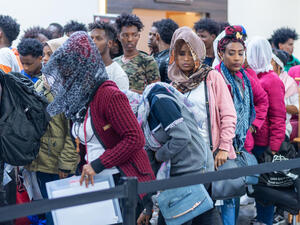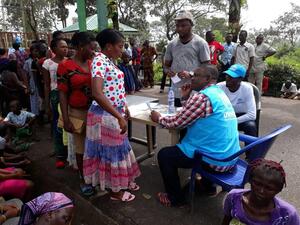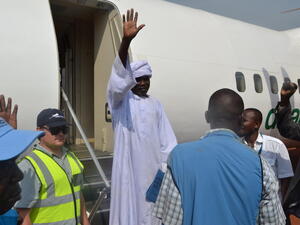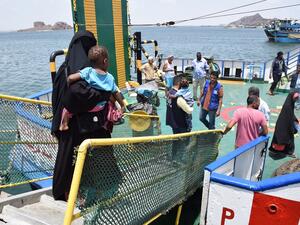UNHCR steps up assistance programmes as more Liberians head home
UNHCR steps up assistance programmes as more Liberians head home
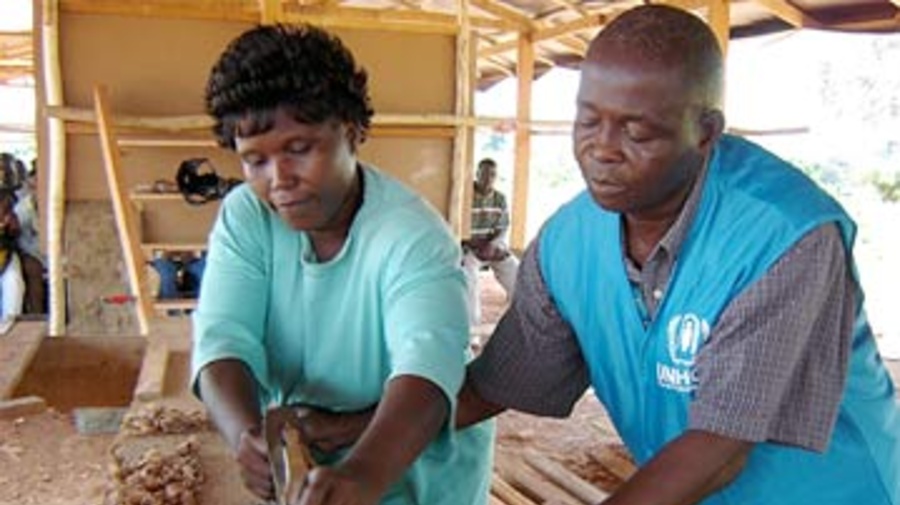
A carpentry shop in Zwedru operated by UNHCR under the skills training programme.
ZWEDRU, Liberia, Oct. 20 (UNHCR) - As uprooted Liberians head home following the end of a 14-year civil conflict, the UN refugee agency is initiating programmes to help returnees make a new life.
At Zwedru in Grand Gedeh county near the border with Côte d'Ivoire, UNHCR recently opened a vocational training programme for 179 Liberians eager to learn masonry, carpentry, agriculture and metal work.
Over the next nine months, participants - 111 war-affected youths and 68 former combatants - will take basic courses on mathematics, English and civics in addition to general orientation and career counselling before going into their chosen skills training.
UNHCR has enlisted 20 teachers in the initiative that is part of its community empowerment project designed to generate employment opportunities as the nation gradually pulls itself up from years of devastating strife.
Since former president Charles Taylor was forced into exile in August 2003, more than 100,000 uprooted Liberians have returned home spontaneously.
Responding to requests for assistance, UNHCR began this month a programme to facilitate voluntary returns from neighbouring countries hosting some 350,000 Liberian refugees. The first organized truck convoys have transported some 300 refugees from Sierra Leone.
Nineteen refugees have been airlifted from Ghana, where movement by ship is also being arranged. Repatriation corridors are opening soon from Guinea and Côte d'Ivoire.
The returns are being fuelled by an unprecedented UN involvement in Liberia. Since Taylor's departure, some 15,000 UN peacekeepers have deployed across the country. A nationwide disarmament programme is under way, bringing peace to areas where former combatants are turning in weapons.
As peacekeepers secure villages, UNHCR and its NGO partners follow with relief and rehabilitation programmes. The refugee agency is funding repair of shelters, roads, schools, water points and clinics and in the process providing much-needed employment in communities where most refugees in the neighbouring countries originate.
The disarming of former fighters in Zwedru began on July 9 and is being carried out in other areas of Grand Gedeh, where bad roads prevent access to remote areas. UNHCR later opened an office in the area and began helping repair schools and water wells.
"We can start a new life by ourselves now, thanks to UNHCR for teaching us new jobs," says George Farley, a 43-year-old school teacher participating in the UNHCR vocational training programme that started last week. He says improved security had given him confidence to go back to Zwedru from Monrovia where he had taken refuge for years.
At the end of the programme, participants will receive a certificate of proficiency and a start-up kit for their respective courses.
"We hope that people who suffered for many years will eventually stand on their own feet with this kind of assistance, and that their recovery in turn will contribute to the realization of lasting peace and stability in society," says Alfredo Fernandez, head of UNHCR's field office in Zwedru.
By Francesca Fontanini
UNHCR Liberia




